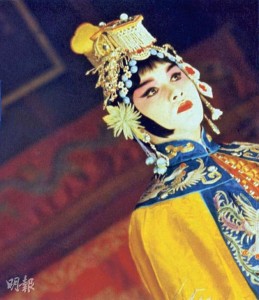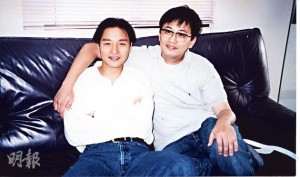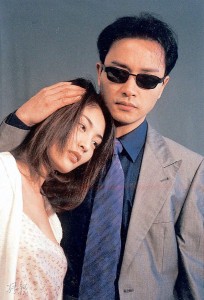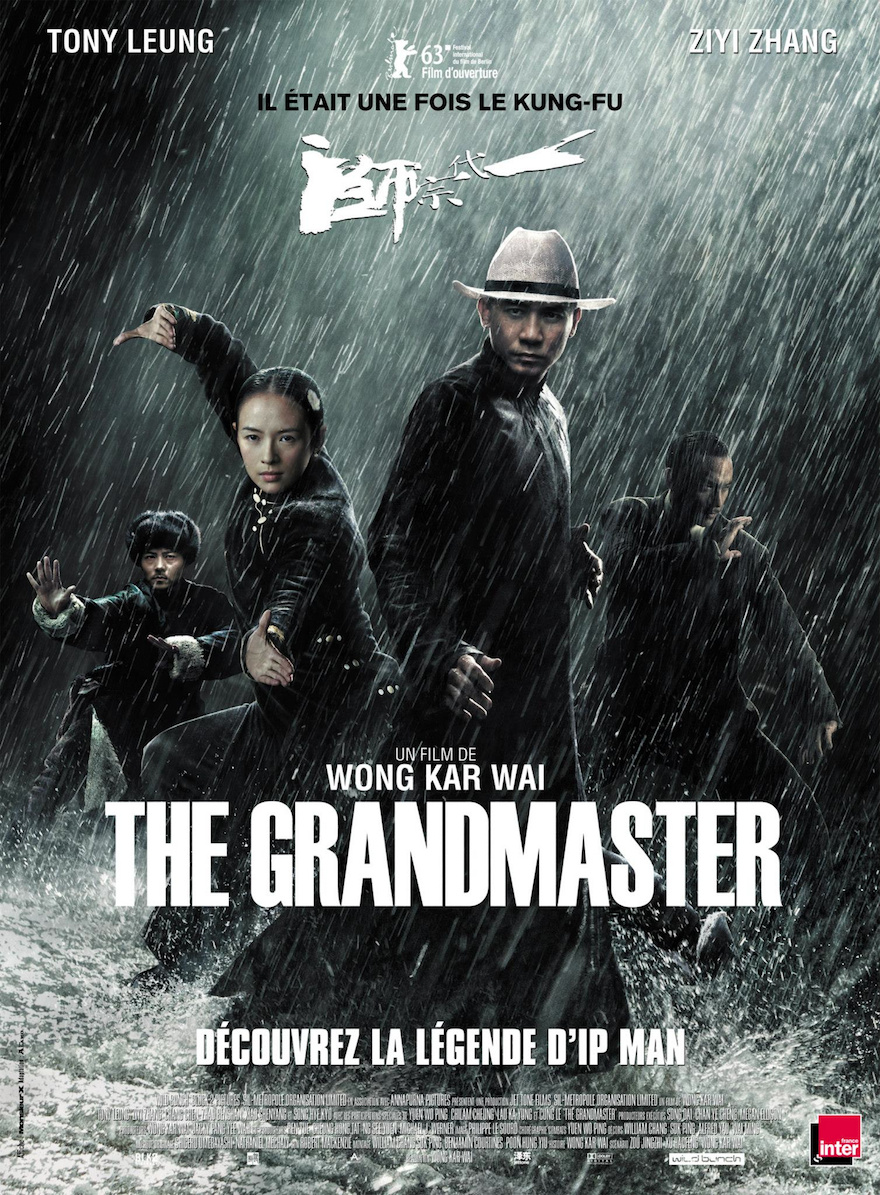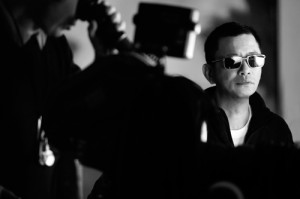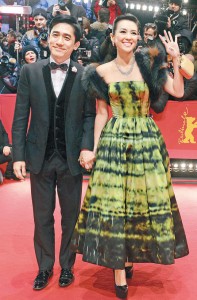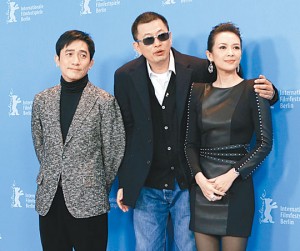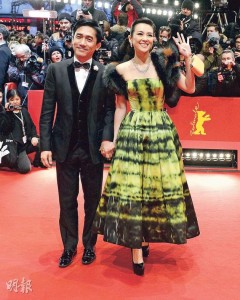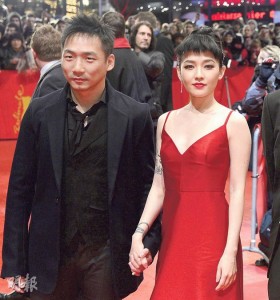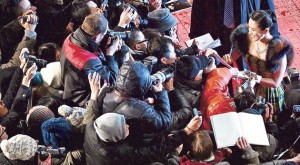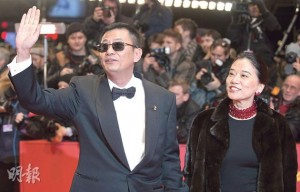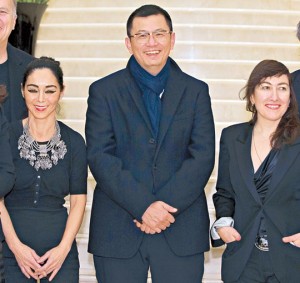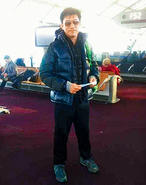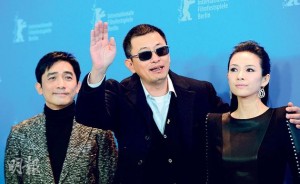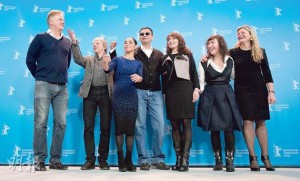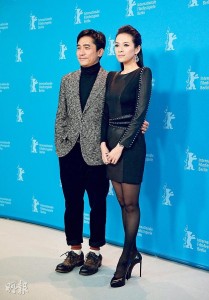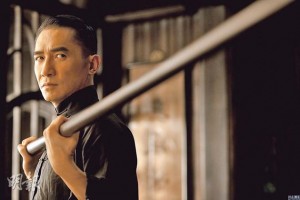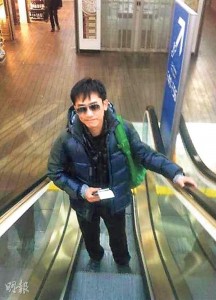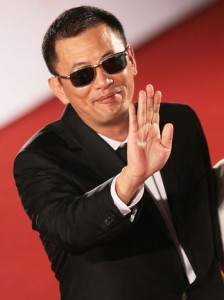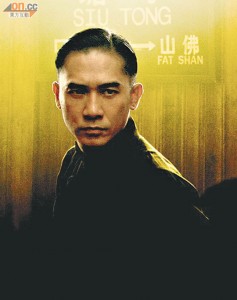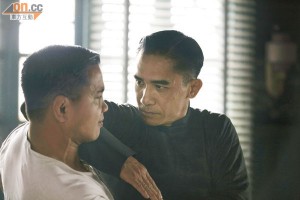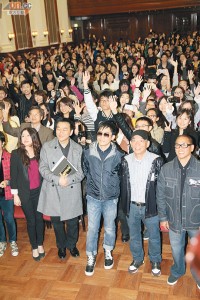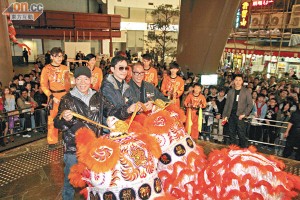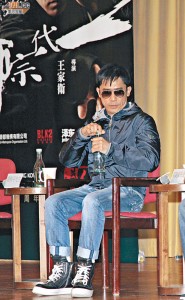Seated in a hotel suite off Place Vendome in Paris, Wong Kar-wai is in fine spirits. You would never know he has just flown in overnight from Bangkok, where he was working around the clock to finish the international cut of his latest release, the martial arts epic The Grandmaster. The new version that opens the Berlinale is about 13 minutes shorter and also went through a small change in structure.
Grandmaster has already been released in China to positive reviews and generated nearly $45 million at the box office, giving Wong his first bona fide blockbuster. As the film makes its international premiere Thursday night at the Berlinale Palast, audiences will be treated to a mix of stunning action choreography (by Yuen Woo-ping) and Wong’s trademark melancholy. The film is an account of how legendary martial arts masters Ip Man (Tony Leung Chiu-wai), Gong Er (Zhang Ziyi), her father Gang Baotian (Wang Qingxiang), The Razor (Chang Chen) and Ma San (Zhang Jin) navigate their lives in politically unstable times in 20th-century China.
Wong, who also presides over the festival competition jury, talked with The Hollywood Reporter about the last-minute fine-tuning of a project he conceived nearly 17 years ago and what the film says about contemporary China.
The Hollywood Reporter: Why did you decide to make an international version of the film?
Wong Kar-wai: The version [released in Asia] has elements which Chinese audiences will be familiar with but which will not be that familiar to foreign audiences. There’s so much information that people could easily become confused. For example, during Ip Man’s opening voice-over about his own background, he talks about his family having a business on Bonham Strand West [a traditional hub of import-export trade in downtown Hong Kong]. Hong Kong audiences will know what that means, but to foreigners it doesn’t mean anything. So we just changed it to how he was running a family business which exports goods to Hong Kong. We made adjustments like this so that international audiences know what it is about.
THR: The film has gone through quite a long period of gestation and production. How different is the final product from the original idea?
Wong: I started out wanting simply to look at Ip Man the person. Later on, however, I discovered what I really wanted to examine is the whole martial arts landscape. I think the biggest question for me was, “What made Ip Man so remarkable?†Some would say it’s because he had a disciple called Bruce Lee, but that would be ignoring something that is crucial: the circumstances which shaped Ip Man’s life. His life is a microcosm of contemporary Chinese history. He lived through the Qing dynasty, the early republican years, the northern conquest [by the government against warlords], the fight against the Japanese [during WWII] and finally the exodus to Hong Kong [during and after the Chinese civil war between 1945 and 1949]. If you don’t give a proper account of this background, you won’t be able to understand the difficulties he goes through. Among the Chinese, and especially among martial arts practitioners or artists, there is this very important notion of passing the torch. It’s about realizing how one doesn’t own what one’s learned. Receiving inherited wisdom from the generation of forefathers means there’s also a responsibility to pass it on. This is the burden a grandmaster has to bear.
THR: Is this something you can identify with as a veteran in your field?
Wong: I wouldn’t really say I’m a grandmaster, so there’s nothing autobiographical about the film. But I think just like what Ip Man did for martial arts, Hong Kong cinema needs a new way of thinking. The other day, while working in Bangkok, a friend gave me this 1990s book about Hong Kong films. The author was saying then how we’ve been making too many films for international markets and we were losing our own unique qualities. But we have to understand that Hong Kong films have been dependent on overseas markets from the very beginning; we’ve never been dependent on our own domestic market. And now you have all this talk about “going north†to tap the mainland Chinese market. But if Hong Kong films are really good, the sky’s the limit. You don’t have to rely merely on the mainland Chinese market. You shouldn’t really constrain yourself.
THR: So how does it feel now to be a Hong Kong filmmaker working on the mainland?
Wong: My cinema is something that belongs to the Chinese people as a whole, and it shouldn’t be limited to just a certain geographical territory in a certain historical era. It’s not like I have to make a film with mainland audiences in mind when we have mainland money in it — and in fact, there’s quite a bit of money from elsewhere as well.
THR: Can The Grandmaster also be seen as a chronicle of how Hong Kong became what it is, given that it ends with all the martial arts experts settling in the city and becoming part of its urban fabric?
Wong: That’s right. This is what I hope the film could be interpreted as. I’m happy now because I never expected the film could whip up so much debate and discussion about the city and what the martial arts masters’ roles were in its history. A lot of people were looking up information about the things we mentioned in the film, whether it’s the martial arts schools, which were set up there after the war, or other things we touched on in the story. This allows [Hong Kong] audiences to acknowledge, yet again, that we came from this very special place, and where the city’s vibrancy and core spirit stem from — that it’s a place that we should be really proud of.
